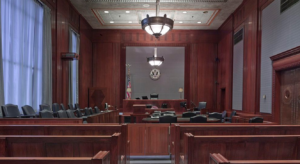
Naturalization is the process of obtaining citizenship and becoming a U.S. citizen. The process is codified in 8 U.S.C. 1427. The requirements are quite straight forward. In order to become a U.S. naturalized citizen, a person must: (1) be a green card holder for 5 years (or, in the case of spouse of a U.S. citizen, 3 years); (2) be physically present in the U.S. for half that time; (3) resided in the U.S. continuously throughout the naturalization process; (4) resided in the USCIS district for at least 3 months; (5) be a person of good moral character.
Outside the statute, there are other requirements. An applicant must be at least 18 years old in order to file the N-400. An applicant must read, write and speak English, although exceptions apply for long-term residents. An applicant must also pass a civics test. The civics test is available online. An applicant will need to know who his or her U.S. Representative and/or U.S. Senator is, along with many other political and historical questions. Lastly, an applicant must take an oath to support and defend the United States of America.
Naturalization seems like a straight forward process, although certain issues may delay or otherwise deny citizenship. The most common involves good moral character. An applicant with a criminal record still may be eligible for citizenship, although the more serious the crime the less likely an application will be granted. Good moral character brings up other considerations, including paying child support and taxes. Another common issue involves residency. Long trips outside the United States for work, family or pleasure are counted on a day by day basis, and may break the residency requirement. Even mistakes in immigration paperwork from years ago can creep up and affect an applicant’s ability to obtain citizenship. In severe cases, a USCIS officer may even deny an N-400 Application for Naturalization and refer an applicant to Immigration Court for removal.
The processing times for an N-400 Application for Naturalization are publicly available, and it depends on the pace of the local USCIS office. However, an increasing number of people who apply for naturalization see their applications delayed for years. Whether its background checks, administrative processing or other vague reasons, thankfully, Congress has implemented a way to speed things up.
Under 8 U.S.C. 1447(b), if 120 days have passed since an N-400 Application for Naturalization examination and USCIS has not made a decision, an applicant may file a federal lawsuit compelling USCIS to make a decision. This is a common practice which usually results in either (a) a hearing on the delay, (b) UCSIS granting or denying the underlying naturalization application; (c) remanding the case back to USCIS with instructions or (d) granting the N-400 application.
If some issues remain discretionary, such as what constitutes good moral character, a judge will usually leave this decision up to the USCIS officer. If the issue is clear cut, such as when all background, criminal and name check are clear, a judge can grant the application and the case becomes moot. In addition, different courts have construed ‘examination’ to have different meanings; an examination may mean the N-400 interview or the whole N-400 investigation into an applicant’s eligibility. If an applicant is successful in federal court, an applicant may apply for costs and attorneys fees.
If you’ve filed for citizenship and your application has been delayed, you may want to consider the above. Contact me at (484) 430-4810 to discuss your options today.
With offices in Malvern, Radnor, Plymouth Meeting, Bala Cynwyd, Philadelphia, Pennsylvania and Marlton, New Jersey, I practice throughout the Greater Philadelphia Area. If you are located in suburban Bucks, Chester, Delaware, Lehigh, Montgomery ,York and Philadelphia Counties, or Atlantic, Burlington, Camden, Gloucester, Mercer or Ocean Counties, contact me today for a consultation regarding your or your loved one’s case today.
About the author